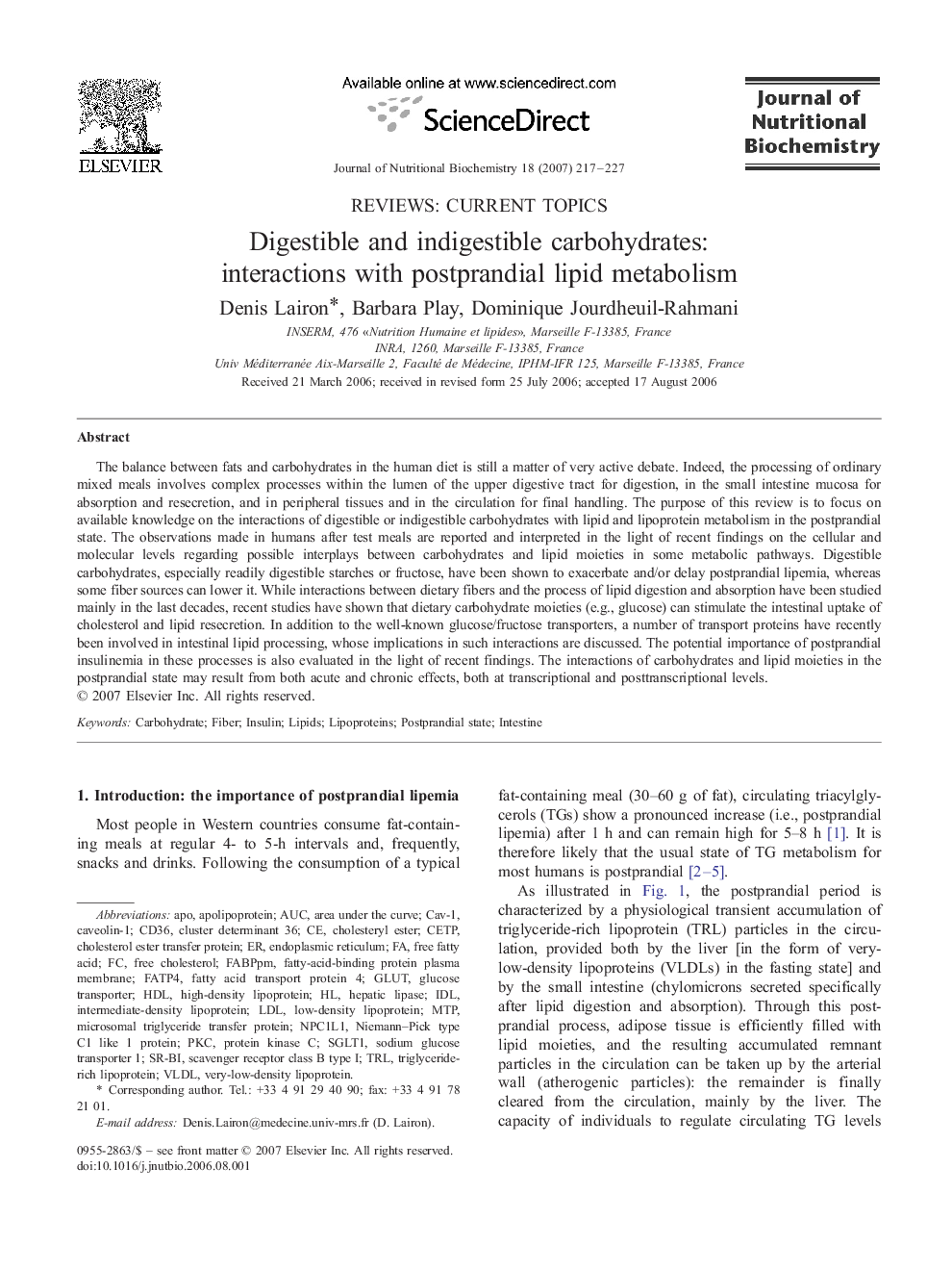| Article ID | Journal | Published Year | Pages | File Type |
|---|---|---|---|---|
| 1991081 | The Journal of Nutritional Biochemistry | 2007 | 11 Pages |
The balance between fats and carbohydrates in the human diet is still a matter of very active debate. Indeed, the processing of ordinary mixed meals involves complex processes within the lumen of the upper digestive tract for digestion, in the small intestine mucosa for absorption and resecretion, and in peripheral tissues and in the circulation for final handling. The purpose of this review is to focus on available knowledge on the interactions of digestible or indigestible carbohydrates with lipid and lipoprotein metabolism in the postprandial state. The observations made in humans after test meals are reported and interpreted in the light of recent findings on the cellular and molecular levels regarding possible interplays between carbohydrates and lipid moieties in some metabolic pathways. Digestible carbohydrates, especially readily digestible starches or fructose, have been shown to exacerbate and/or delay postprandial lipemia, whereas some fiber sources can lower it. While interactions between dietary fibers and the process of lipid digestion and absorption have been studied mainly in the last decades, recent studies have shown that dietary carbohydrate moieties (e.g., glucose) can stimulate the intestinal uptake of cholesterol and lipid resecretion. In addition to the well-known glucose/fructose transporters, a number of transport proteins have recently been involved in intestinal lipid processing, whose implications in such interactions are discussed. The potential importance of postprandial insulinemia in these processes is also evaluated in the light of recent findings. The interactions of carbohydrates and lipid moieties in the postprandial state may result from both acute and chronic effects, both at transcriptional and posttranscriptional levels.
